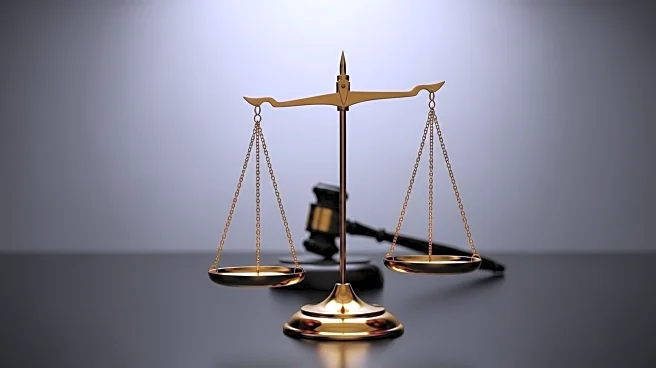What's Happening?
President Trump has signed an executive order aimed at eliminating cashless bail in Washington, D.C. This move is intended to reform the judicial system in the nation's capital by removing the option for defendants to be released without posting bail. The executive order is part of a broader effort to address concerns about public safety and the effectiveness of the cashless bail system, which has been criticized for allowing potentially dangerous individuals to be released back into the community without sufficient oversight. The order is expected to have significant implications for how courts in D.C. handle pretrial detentions and bail decisions.
Why It's Important?
The elimination of cashless bail in Washington, D.C. could have a substantial impact on the judicial system and public safety. Critics of cashless bail argue that it can lead to increased crime rates, as individuals accused of serious offenses may be released without adequate monitoring. By removing this option, the executive order aims to ensure that defendants who pose a risk to the community are detained until their trial. This change could lead to a decrease in crime rates and enhance public safety, but it may also raise concerns about the fairness of the judicial process, particularly for low-income individuals who may struggle to afford bail.
What's Next?
The implementation of President Trump's executive order will require adjustments in the D.C. court system, including changes to pretrial procedures and bail assessments. Legal experts and civil rights advocates are likely to scrutinize the order's impact on defendants' rights and the potential for increased incarceration rates. The order may also prompt discussions among lawmakers and policymakers about the balance between public safety and judicial fairness, potentially influencing similar reforms in other jurisdictions.










